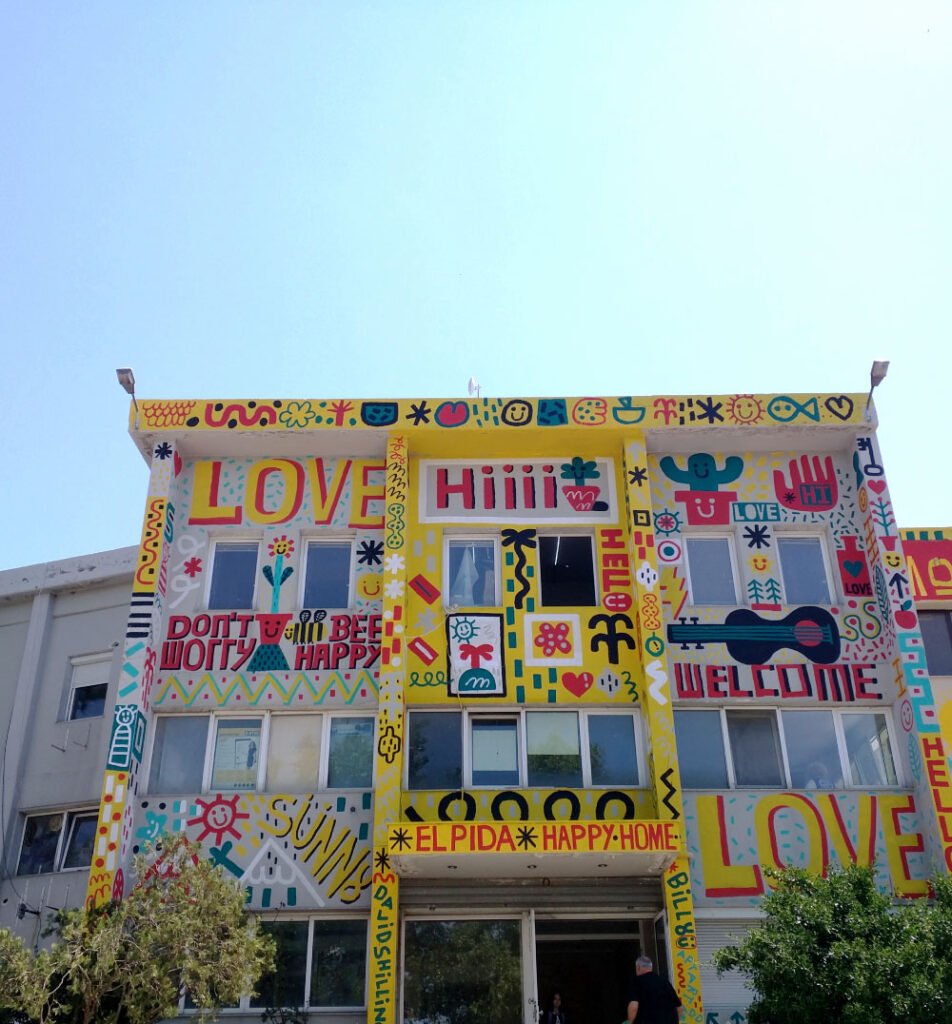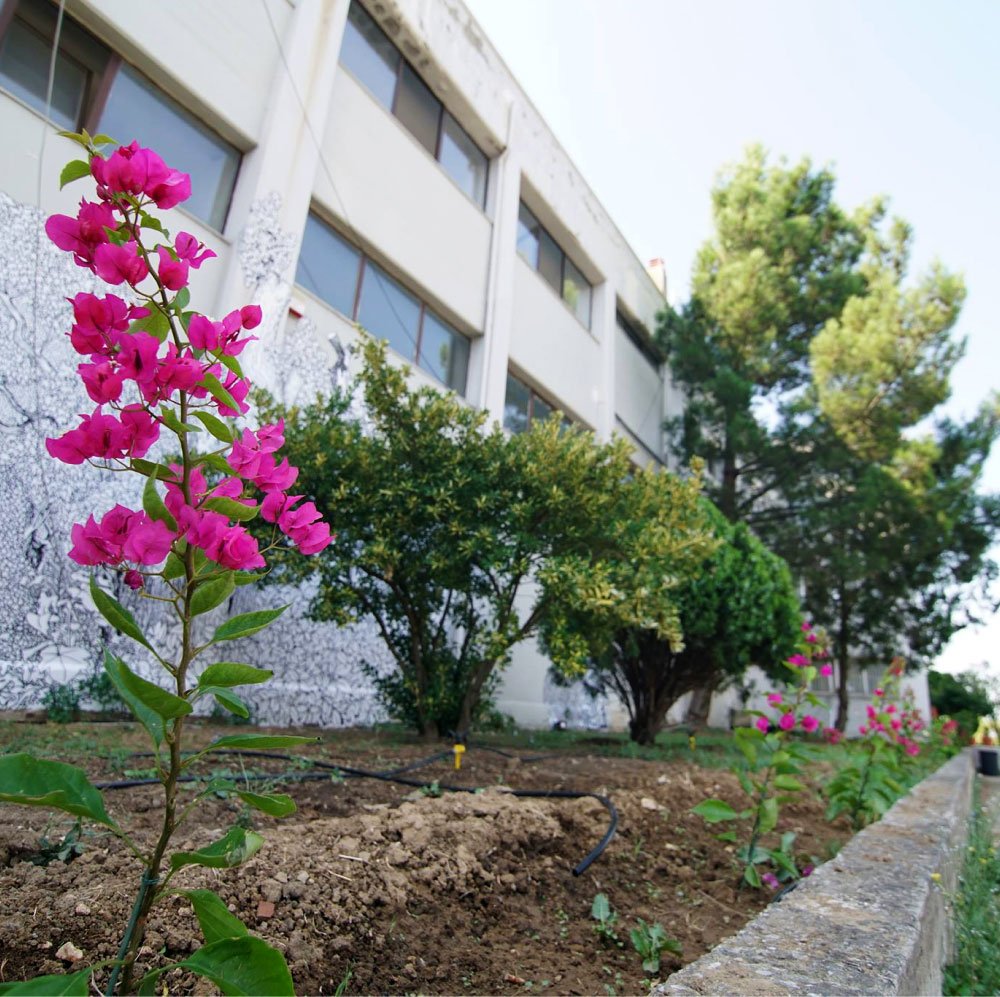

The center opened its doors in July 2016, two months after the closure of the Idomeni camp.
The result was nothing like a factory and, most importantly, it was unlike most refugee camps.
The center had room for up to 180 residents, who lived in large, private rooms furnished with new furniture and household appliances. Common areas, such as a large kitchen with multiple stoves, bathrooms, and community areas for women, men, and children, were also included.

The site consisted of 34 rooms suitable to accommodate families of 2-8 people.
As important as the individual living spaces were, equally so were the communal spaces. The accommodation included: two classrooms that provided full-time education for young residents, space for adult education and recreational activities, a food and goods distribution point, a communal kitchen, a lounge, a full-service clinic and space for psychosocial support services.
Other facilities included the reception, which served as an information point. In the vicinity of the building there was a sports area, a barbecue area, a 300 sq.m. activity tent, a playground and an olive grove.
The relationship between the residents and the organization in charge is an integral part of any refugee accommodation center.
Elpida Home has further developed this relationship by exploring various ways of co-planning development and co-implementation of policies and systems.
Residents were encouraged to take an active role within their accommodation.
The residents’ council, which held regular sessions, made decisions concerning their daily life. Food distribution and the communal kitchen at the center were managed by the residents.
The primary medical care providers at Elpida Home were Team Rubicon and later Team Kitrinos.
Prenatal care was provided by Nurture Project International. They also held a weekly support group for women with newborn babies.
Psychological and psychosocial support services were available to all residents. A coalition of agencies, including Doctors of the World, TdH and IOM, was coordinated by Elpida Home to ensure that a full range of services was provided on an ongoing basis.